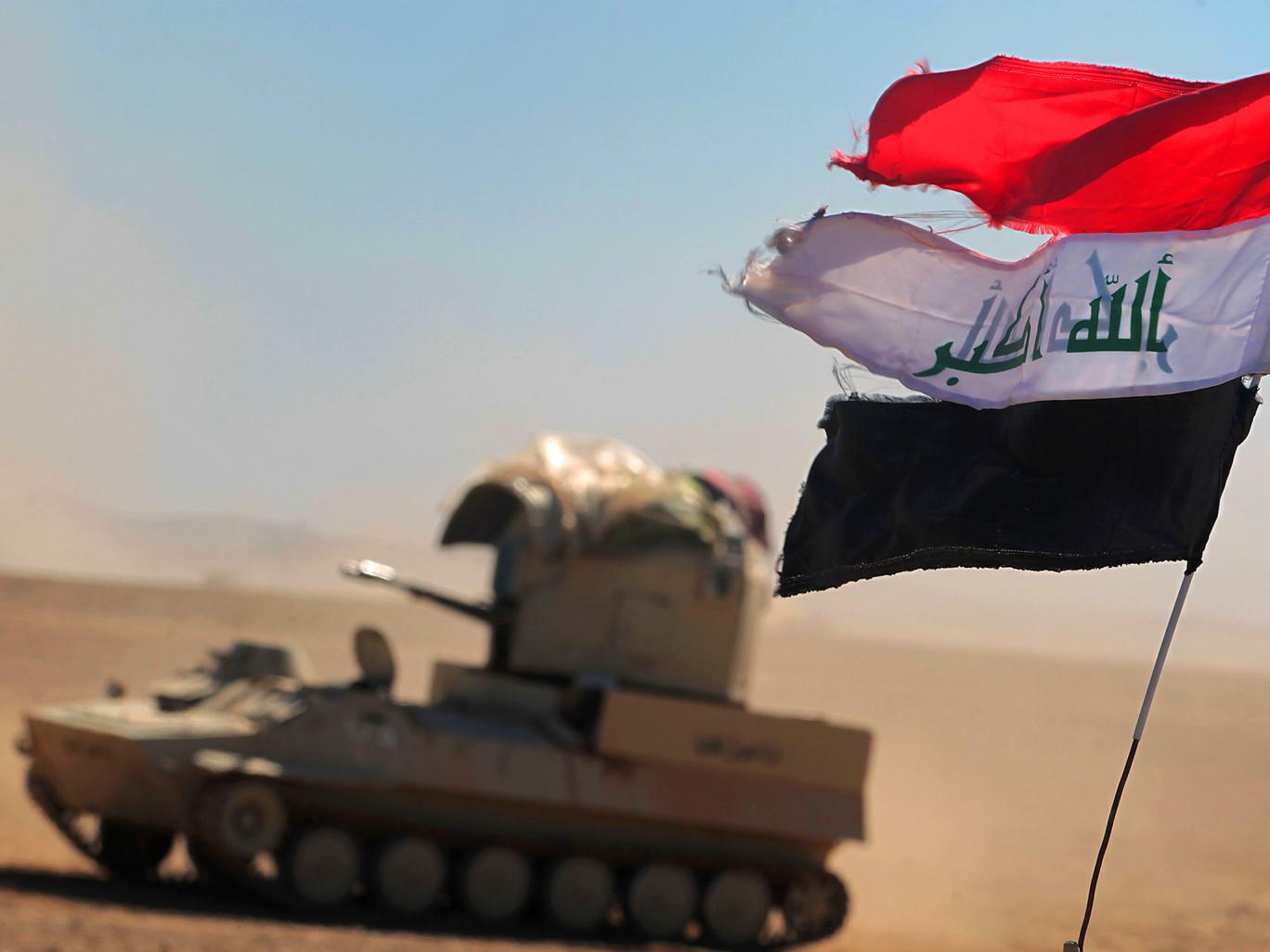Victory over Isis in Mosul could mean defeat in Syria's Deir Ezzor 250 miles west

2017-02-21T19:46:00+00:00
“The re-conquest of western Mosul begins.” Or so several headlines in the Arab press have announced. And it’s true that the Iraqi army and its Shia militia allies and a few token soldiers from the US, Turkey, Britain and Kurdish forces have captured some small villages abandoned by Isis near the old Mosul airport. But it is likely to be weeks – perhaps months – before they can claim victory over Isis in Mosul. And even if they are successful, the real blow may fall on a Syrian city hundreds of miles to the west.
For behind the dust clouds and shellfire of the latest Iraqi armoured offensive against Isis in western Mosul – and the usual promises of success from the Iraqi prime minister and assorted American generals – lies the Syrian city of Deir Ezzor, its government defenders and perhaps 90,000 civilians now isolated by Isis into two pockets of resistance in the desert. Supplied by helicopter and led by a ferocious Druze Syrian general, the regime’s forces have held out for five years. But if Isis breaks out from Mosul in the coming weeks, its fighters are likely to speed 340 miles west to the surrounded Syrian city to support their comrades there. Victory in Mosul, in other words, could mean defeat in Deir Ezzor.
This, of course, is not how the story is being told. Forgetting that victorious offensives against Isis in Mosul have been proclaimed four times in the past three years, it’s clear that President Donald Trump, for all his illusory grasp of geography, needs a victory against the Isis cult in the Middle East. It would be the first election pledge he would be able to start honouring; which is no doubt why General Jim Mattis – who earned his sobriquet of ‘Mad Dog’ in Iraq – was in Baghdad to encourage the advance on Mosul by the pro-American but largely Arab forces.
Iraqi prime minister Haider al-Abadi, who once pledged to free all of Mosul by the spring of last year following its 2014 capture by Isis, desperately needs another victory against an enemy whose multi-kamikaze attacks have decimated up to 50 per cent of his best-trained brigade. And fighting in the ancient, narrow-streets of old western Mosul, neither tanks or armoured vehicles are likely to be of much use to the Iraqi army. Air strikes on a civilian population of more than half a million in western Mosul conjure up nightmares of eastern Aleppo when western leaders were loud in their condemnation of Syria and Russia’s air onslaught against Islamist fighters.
Despite the ‘new’ Iraqi offensive – which looks a lot like previous ones since it has so far captured only largely empty villages – the scenario is distressingly familiar: up to 650,000 civilians trapped behind Islamist lines, few escape routes and the great river Tigris as one of the front lines. Ironically, Deir Ezzor, whose fate is hinged to that of Mosul, lies along the ancient twin river of the Euphrates, which flows past the Syrian-Isis front lines to the west. Earlier this year, Isis managed to cut Syrian government-held territory in Deir Ezzor in two, and Syrian troops only just managed to maintain control of the city’s airport after a massive American air attack which killed more than 60 Syrian soldiers. The Americans said this was a mistake. The Syrians said it was deliberate.
Unable to undo the damage caused by Mr Trump’s anti-Iraqi immigration order, General Mattis has been left to bind up other wounds caused by his president’s suggestion that US forces should have taken Iraq’s oil after the Anglo-US invasion of 2003. America, Mr Mattis told Iraqis, was “not in Iraq to seize anyone’s oil”. Believing that, however, may be a tall order for Iraqi forces now ordered to bash their way into the fiery streets of western Mosul. As usual, the Americans, British and Turks will deploy their airpower, but much of the fighting on the ground – and most of the dying – will be done by the Iraqis and Kurds and their Isis enemies.
Perhaps the 650,000 trapped civilians in western Mosul will turn out to be an exaggerated figure. Eastern Aleppo’s 250,000 besieged men, women and children, seem to have been closer to 90,000 once the time the battle was over and statistics could regain their credibility. But the UN and other humanitarian agencies have to prepare for the worst, whatever generals and politicians and journalists may predict.
Comparisons with World War Two are always fraudulent, but the conflict’s propaganda still contains lessons for today’s wars. Hitler announced the ‘victory’ at Stalingrad in the autumn of 1942. It took the Russians six months to recapture the entire city. The latest Battle of Mosul only began four months ago.